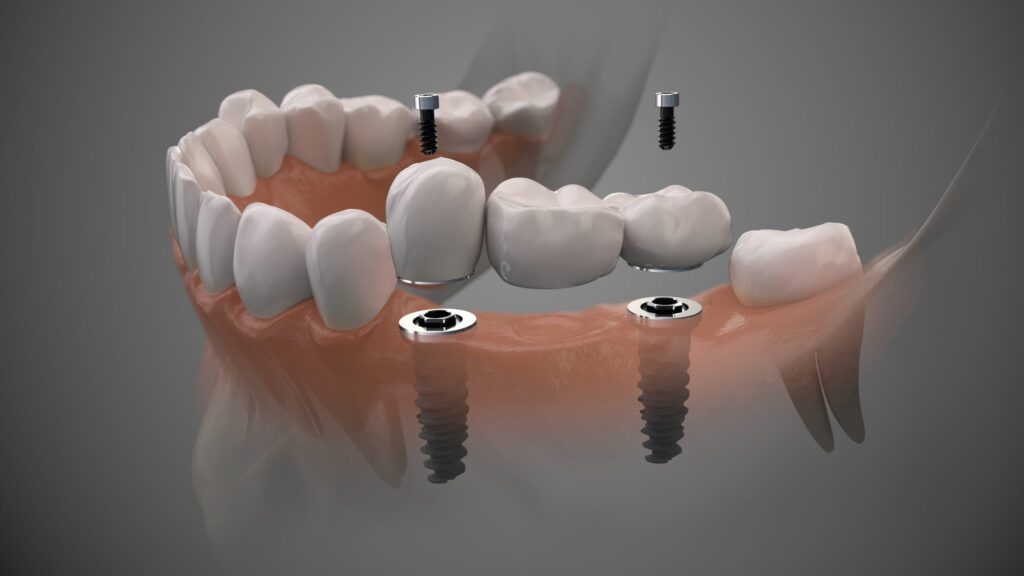When considering tooth replacement options, one question is more common than any other: Are dental implants worth having? The simple answer is yes. Dental implants are not only a functional solution to missing teeth but also a powerful investment in long-term oral health, appearance, and quality of life. While the upfront cost and surgical nature of implants may cause hesitation, their unmatched durability, performance, and health benefits often make them the superior choice for patients of all ages.
To fully understand their value, it is important to examine the mechanics, benefits, cost comparison, suitability, and life-changing outcomes of choosing dental implants over other restorative options.

What Will You Read?
What Are Dental Implants?
Dental implants are artificial tooth roots, typically made from medical-grade titanium or zirconia, that are surgically placed into the jawbone. Once healed, the implant supports a crown, bridge, or full arch of prosthetic teeth. Unlike dentures or dental bridges, implants are anchored directly into the bone, creating a stable and permanent solution that looks, feels, and functions like natural teeth.
Each implant system typically includes:
- A titanium post surgically embedded into the bone
- An abutment that connects the post to the crown
- A custom-made prosthetic tooth or bridge
This structure allows dental implants to replicate the entire tooth, from root to crown, giving them a significant functional advantage.
Benefits of Dental Implants
Dental implants offer far more than just an aesthetic upgrade. They are a comprehensive restoration that improves health, comfort, confidence, and daily function.
Improved Chewing and Nutrition
Dental implants restore up to 90 percent of natural bite force, allowing patients to enjoy a full range of foods. Unlike dentures, which can slip during chewing, implants provide stability and comfort during every meal. This leads to better nutrition, especially for older adults who may avoid hard or fibrous foods due to chewing difficulties.
Natural-Looking Appearance
Because implants are placed into the bone and finished with custom-designed prosthetics, they blend seamlessly with natural teeth. There are no visible metal clasps or awkward gaps, and the crowns are color-matched for harmony with the rest of your smile.

Bone and Gum Preservation
When teeth are lost, the jawbone begins to shrink due to lack of stimulation. This bone loss can change facial shape and lead to premature aging. Dental implants stimulate the bone like natural tooth roots, preserving volume and maintaining a youthful facial structure.
Durability and Longevity
While dentures and bridges typically need replacement within 5 to 10 years, dental implants can last 25 years or more with proper care. Many patients enjoy their implants for a lifetime, making them an excellent long-term investment.
Psychological and Social Impact
Dental implants restore not only your ability to chew but also your self-confidence. Patients feel more comfortable speaking, smiling, laughing, and interacting socially. The psychological freedom that comes from not having to worry about dentures slipping or bridges breaking is a benefit that many find invaluable.
Comparing Implants to Dentures and Bridges
To decide whether implants are worth it, it helps to compare them directly to other replacement options.
| Feature | Dental Implants | Dental Bridges | Removable Dentures |
|---|---|---|---|
| Lifespan | 25+ years | 7 to 15 years | 5 to 10 years |
| Bone preservation | Yes | No | No |
| Stability | Fixed in jawbone | Cemented on adjacent teeth | May shift or loosen |
| Comfort | High | Moderate | Often uncomfortable |
| Chewing efficiency | Very high | Moderate | Low to moderate |
| Maintenance | Brush and floss normally | Special flossing tools | Remove and clean daily |
Are Dental Implants Cost-Effective?
Although dental implants cost more initially than other methods, they often save money in the long run due to their durability and reduced maintenance.
Cost Overview
| Treatment Option | Initial Cost (per unit) | Average Lifespan | Long-Term Cost (20 years) |
|---|---|---|---|
| Dental Implants | $2000 to $5000 | 25+ years | Low |
| Dental Bridges | $1500 to $3000 | 7 to 15 years | Moderate to high |
| Dentures | $1000 to $2500 | 5 to 10 years | High |
With implants, there are no adhesives, realignments, or frequent replacements. The one-time expense offers long-term peace of mind and fewer visits to the dentist for repairs or replacements.
Are You a Candidate for Dental Implants?
Most healthy adults can qualify for dental implants, but some conditions may require additional procedures such as bone grafting.
Ideal Candidates
- Adults with fully developed jawbones
- People missing one or more teeth
- Non-smokers or those willing to quit
- Patients with healthy gums
- Individuals without uncontrolled chronic conditions
Even if bone loss has already occurred, dental surgeons can rebuild the jaw using grafts or sinus lifts, making implants possible for more patients than ever before.
Are Dental Implants Painful?
Modern dental implant procedures are well-tolerated and performed under local anesthesia. For those with dental anxiety, sedation options such as oral medication or IV sedation are available.
Pain after surgery is usually mild to moderate, similar to the discomfort following a tooth extraction. Most patients return to their normal routines within a few days. Discomfort can be managed with:
- Over-the-counter pain relievers
- Cold compresses
- Soft foods
- Rest and hydration
Do Dental Implants Look and Feel Natural?
Yes. Once healed, dental implants feel like real teeth. Because they are anchored in bone, they do not shift or move. You can eat, speak, and laugh without hesitation. Crowns are designed to match the shade, size, and contour of your natural teeth, making implants virtually indistinguishable.
Maintenance Requirements
Caring for dental implants is as easy as caring for natural teeth. Daily brushing, flossing, and regular dental checkups are essential. There is no need to remove them at night or soak them in solution. Patients should avoid smoking and excessive alcohol, which may impact healing and longevity.
What Are the Risks?
Dental implants have a very high success rate, but as with any procedure, there are some risks to be aware of:
- Infection at the implant site
- Delayed healing
- Nerve damage (rare)
- Implant failure (rare, especially with proper care)
Working with a qualified and experienced implant specialist significantly reduces these risks.
Affordability and Global Options
For patients concerned about cost, dental tourism is a growing solution. Countries like Turkey, Mexico, and Thailand offer high-quality implant treatments at a fraction of the price seen in the United States, United Kingdom, or Australia.
Cost Comparison by Country
| Country | Single Implant Cost | Full Arch (All-on-4) Cost |
|---|---|---|
| USA | $3000 to $5000 | $20000 to $35000 |
| UK | £2500 to £4000 | £15000 to £30000 |
| Germany | €2000 to €3500 | €14000 to €28000 |
| Turkey | $700 to $1200 | $4000 to $8000 |
Clinics in Turkey, for example, are known for advanced facilities, internationally trained dentists, and all-inclusive packages that often cover transportation and accommodation. This combination of quality and affordability makes dental implants accessible to a much wider audience.
Final Thoughts
So, are dental implants worth having? When you consider their durability, functionality, aesthetic value, and impact on overall health, the answer is clear. Dental implants are not just a solution for missing teeth. They are a long-term investment in your confidence, comfort, and quality of life.
For patients seeking the best return on their dental health investment, dental implants offer unmatched value. Whether you are replacing one tooth or an entire arch, implants provide a permanent foundation that restores your smile and lifestyle without compromise.

 Dijital Performans Ajansı.
Dijital Performans Ajansı.